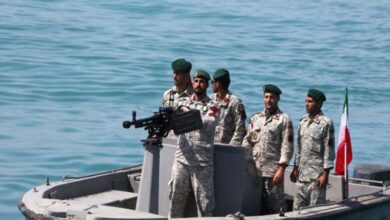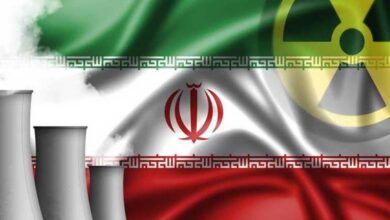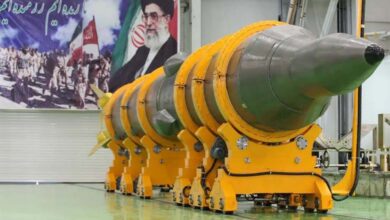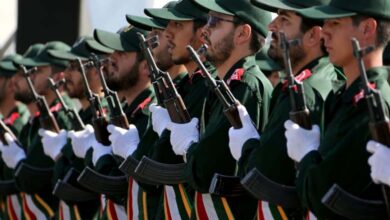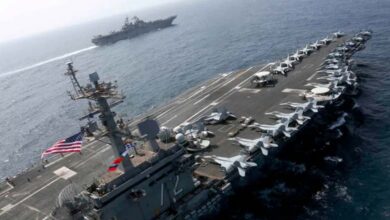What is behind Iran’s policy of intercepting oil tankers in the Strait of Hormuz and the Arabian Gulf?
Oil tankers are being intercepted in the Strait of Hormuz and the Arabian Gulf by Iran
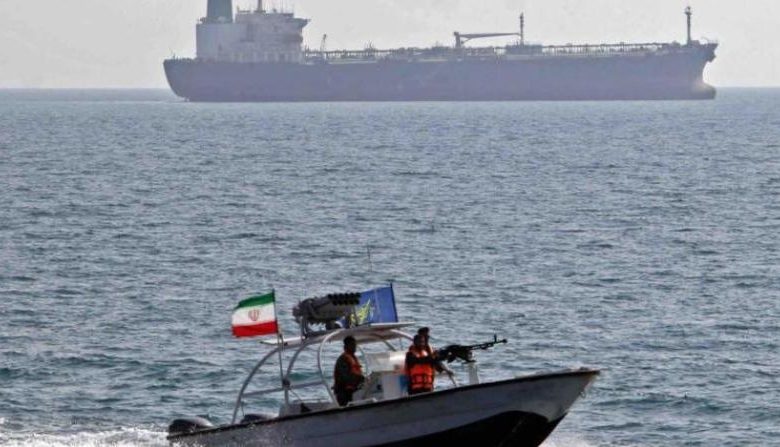
Iran seems unwilling to calm down despite attempts at reconciliation with the Arab world. Iran’s maritime terrorism in the seas continues, disrupting any efforts for reconciliation with the international community and leading to increased international sanctions on the Iranian people who protest against the government on a daily basis.
Piracy appears to be Iran’s naval language, as it intends to keep the region constantly tense for its own agenda. Thus, any disruption that occurs in the region is somehow linked to Iran or its proxies. Unfortunately, the escalating Iranian harassment is not met with adequate responses from the United States and Europe.
Attempted seizure of oil tankers
Recently, the US Navy accused Iran of attempting to seize two oil tankers in the Gulf of Oman near the Strait of Hormuz, stating that its forces thwarted the operation. The UK Maritime Trade Operations reported that gunfire was directed at an oil tanker off the coast of the Omani capital, Muscat.
The US Navy indicated that Iran attempted to seize the two commercial oil tankers near the Strait of Hormuz early in the day, but the incident was responded to by the US Navy. It added that two Iranian ships attempted to intercept the oil tankers, and “one of them was fired upon” to prevent the seizure operation.
It confirmed that the firing on the Iranian ship did not result in any injuries or significant damage, and announced that the Iranian navy retreated after the US Navy responded to distress signals from the two oil tankers, which continued their journeys normally.
Iran’s silence
Iran is keen not to make an official statement regarding its seizure of oil tankers, given the current tension and escalation between Iran, the United States, and some European countries. Tehran justifies its actions through legal arguments, such as accusing the tankers of environmental pollution, deviation from legal routes, or investigating the collision of an Iranian fishing boat with the tanker.
The timeline of Iran’s policy towards maritime traffic in the Arabian Gulf and the Gulf of Oman indicates a direct link between this Iranian behavior and the tightening of US sanctions. This has escalated to an unprecedented crisis. Why does Iran target maritime vessels in the Gulf?
According to informed sources, amid ongoing Iranian threats regarding oil exports, Iran seeks to balance the pressure on its oil exports by targeting oil tankers and maritime traffic. Former Iranian President Hassan Rouhani previously stated that if Iran is prevented from exporting its oil, it will prevent other countries in the region from doing the same. This tactic also aims to influence the positions of major powers regarding economic entry points.
The sources added that Iran realizes that disrupting international navigation in the Arabian Gulf and the Gulf of Oman, one of the world’s most important maritime passages where approximately 20% of global oil exports pass through the Strait of Hormuz, is a pressure card to confront the challenges posed by the United States and European leniency in dealing with the crisis. Major powers take this into consideration when dealing with the Iranian issue.
Deterrence against countries seeking to seize Iranian oil tankers
Iran aims to send implicit messages through its threats against oil tankers to intimidate and terrorize the world. The Iranian regime is well aware of its internal and external failures, both politically and militarily, and that the Iranian state is torn apart due to its unbalanced domestic and foreign policies.
It should be noted that the recent Saudi-Iranian reconciliation facilitated by China, after signing agreements with Saudi Arabia under Chinese sponsorship, may lead Iran to reclaim its status as a state. Looking positively to the future, the Iranian regime may be attempting to restore the Iranian state externally and fulfill the promises it made to China, Russia, and Saudi Arabia.





